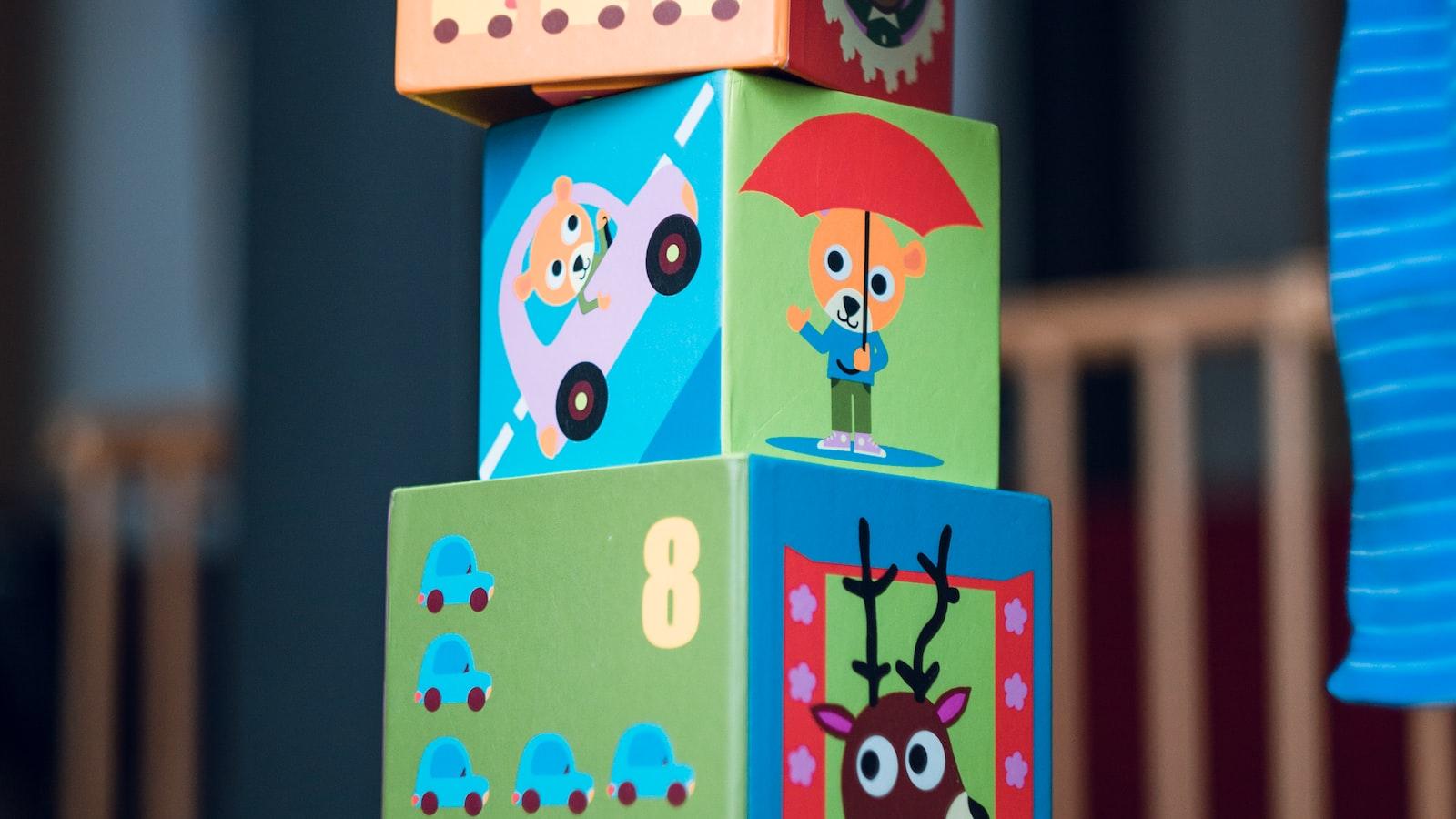Yawning is a common occurrence in babies, as it is in adults. But why do babies yawn so much? There are many different reasons why your baby might be yawning a lot, ranging from fatigue to hunger. In this article, we will discuss the various causes of excessive yawning in babies, as well as tips for reducing the amount of time your baby spends yawning. We will also discuss when it might be time to consult your pediatrician about your baby’s excessive yawning.There are several potential reasons why your baby may be yawning so much. It could be that they are tired and need more sleep. Babies have shorter attention spans than adults, so if they are overstimulated, they may yawn as a sign of fatigue. Additionally, yawning is a natural reflex that babies may do even when they’re not tired. Yawning helps regulate oxygen levels in the body, which could be why babies may yawn more often than adults. Lastly, it is possible that your baby is feeling bored and needs some stimulation to keep them engaged.
What Does Yawning Mean for Babies?
Yawning is a normal reflex for babies, just like adults. When babies yawn, it can be a sign that they are tired or bored. It can also be a sign that they are in need of attention and comfort. Babies may not always yawn to communicate fatigue, however. They may also do it to imitate people around them or because they find the action interesting.
Yawning is a natural response to boredom or overstimulation. A baby may yawn if they are too hot, too cold, or not feeling well. Yawning can be an indication that they need to take a break from activity and rest for a while.
Yawning can also be caused by hunger and thirst; this is especially true in newborns. If your baby is yawning frequently, try giving them a bottle or nursing them to see if that helps calm them down. This could indicate that your baby needs more frequent feedings and/or is not getting enough food or water during their feedings.
If your baby is yawning often and doesn’t seem to need food or water, it could be a sign of overstimulation from their environment or too much activity. Try taking them away from loud noises or bright lights and give them some quiet time with you instead. This will help them relax and refocus their energy on something else besides yawning all the time.
Yawning can also simply be an expression of contentment; some babies may even smile while yawning if they are feeling particularly content in the moment! Whatever the cause of the yawns, it’s important to remember that it’s perfectly normal for babies to do so as part of their development process.
What are the Benefits of Yawning in Babies?
Yawning is an important reflex for newborn babies, as it helps them to regulate their body temperature and maintain their energy levels. It also helps to prepare the baby’s body for rest and sleep. In addition, it is believed that yawning may help babies to develop their facial muscles and build a connection between breathing and movement.
For newborns, the act of yawning has been found to be beneficial in terms of calming the baby down and helping them to relax. Yawning can also help babies learn about the world around them by providing a sensory experience. When babies yawn, they often look around with curiosity and explore their environment. This helps them to become more familiar with their surroundings and create meaningful connections with people they come into contact with.
Yawning also has a soothing effect on babies which can help them feel more secure in an unfamiliar environment or when they are feeling overwhelmed by too much stimulation or activity. Studies have found that yawning can even reduce stress hormones in infants, helping them relax even further while calming any distress they may be feeling.
Finally, yawning is thought to help with the development of communication skills as it is often seen as an expression of interest or engagement from a baby when interacting with someone else. By responding to another person’s yawn, a baby is able to show that they recognize the other person’s emotions which can help foster a stronger bond between them both.
In summary, yawning has many benefits for newborn babies, from regulating their body temperature and energy levels to reducing stress hormones and helping them explore their environment. It also helps infants develop facial muscles, create meaningful connections with those around them and build communication skills which will benefit them as they grow older.
Common Causes of Excessive Yawning in Babies
Excessive yawning in babies can be a sign of many different things, including boredom, tiredness, and even illness. While yawning is a normal part of development for babies and young children, excessive yawning can be a sign of something more serious. It is important to understand the common causes of excessive yawning in babies so that you can determine whether or not your child needs to see a doctor.
One common cause of excessive yawning in babies is simply boredom. Babies can easily become bored with their surroundings or activities if they are not stimulated enough. If you notice that your baby is yawning excessively, it may be because he or she needs more stimulation or something new to do. Try introducing new toys or activities to help keep your baby engaged and reduce the amount of yawns.
Another common cause of excessive yawning in babies is tiredness. If your baby has been up late at night or has been active for too long during the day, they may start to feel tired and start to yawn excessively as a result. Make sure that you are getting your baby on a regular sleep schedule by putting them down for naps at the same time each day and having them go to bed at the same time each night so that they don’t become overtired.
Finally, excessive yawning in babies can also be caused by illness. If you have noticed that your baby has been coughing, sneezing, or running a fever along with their excessive yawns, it could be an indication that they are coming down with something more serious than just being tired or bored. Make sure you take your baby to the doctor if you think they might have an infection or virus so that they can get the proper treatment.
Helping a Baby Who is Yawning Too Much
Yawning is a natural reflex that helps regulate the body temperature and alertness levels. Babies, especially newborns, tend to yawn more than adults. But when a baby is consistently yawning more than usual, it could be an indication of a medical issue. To help your baby if he or she is yawning too much, it’s important to understand why they’re yawning and address any underlying conditions or needs.
The first step in helping your baby who is yawning too much is to determine the cause. If the baby has been sleeping for several hours and still appears tired, he or she may be experiencing fatigue due to an underlying medical condition or a lack of sleep. In this case, you should consult with your doctor to identify any medical issues that may be contributing to the excessive yawning and ensure that your baby is getting enough restful sleep.
In some cases, babies may also be yawning due to hunger or thirst. If your little one seems cranky or irritable when they are awake, it could be a sign that they are dehydrated or hungry and need something to eat or drink. Make sure you are offering them nutritious meals throughout the day and giving them plenty of fluids between meals so that they stay hydrated.
If your baby seems uncomfortable in their environment—for example if it’s too hot or cold—they may also be yawning excessively in order to cope with the temperature change. Make sure their room is at a comfortable temperature by monitoring the air conditioning and using suitable bedding so they can stay warm without overheating.
Finally, if your baby seems bored while awake it could lead them to yawn excessively as well. Spending time with them during their waking hours can help keep them stimulated and interested while providing an opportunity for bonding with you as well. Consider playing some music for them, reading stories together or spending time outdoors so they have something interesting to do when they’re awake.
Yawning can often indicate a need for something from your little one—whether it’s sleep, food, hydration or stimulation—so make sure you pay close attention when your baby starts yawning too much in order to identify what their body needs in order to feel better again.

Is It Normal for a Baby to Yawn Often?
Yes, it is normal for a baby to yawn often. Yawning is a reflex that usually happens when the body needs more oxygen. Babies need a lot of oxygen since their organs are still developing, so they tend to yawn more than adults. Yawning also helps relax the muscles in the face and throat, which is why babies often look calmer after they yawn.
Another reason why babies yawn frequently is because they are learning how to regulate their breathing. When babies are born, their breathing patterns are not yet regular and consistent. As they get older, they learn how to coordinate their breathing with the movements of their body. This process helps them stay calm and relaxed, and it’s why you may see a baby yawning as part of this process.
Yawning can also be a sign of fatigue or boredom in babies. If your baby seems tired or bored, try engaging them with some stimulating activities such as reading stories or playing interactive games. This can help keep them alert and engaged while helping them get enough rest at the same time.
It’s important to remember that every baby is different and there’s no one-size-fits-all answer when it comes to how much or how often your baby should be yawning. If you have any concerns about your baby’s health or development, always consult your pediatrician for advice on what is best for your child.
Could Excessive Yawning Indicate an Underlying Health Problem?
Excessive yawning can sometimes signal a medical problem. While it is normal to yawn occasionally, if you find yourself frequently or uncontrollably yawning, it could be a sign of an underlying health issue. It is important to note that excessive yawning can also be a symptom of a mental health disorder, such as depression or anxiety.
Yawning is usually associated with fatigue and boredom, but it can also be triggered by low oxygen levels in the blood. A person who is experiencing low oxygen levels may yawn more often to try and increase their oxygen intake. This can be due to a variety of medical conditions ranging from sleep apnea to anemia.
In some cases, excessive yawning may indicate a problem with the brain or nervous system. It can point to neurological issues such as stroke, multiple sclerosis (MS), or Huntington’s disease. It can also be caused by some medications, such as those used for treating depression and anxiety.
If you find yourself yawning more than usual, it’s important to speak with your doctor about any potential underlying causes. Your doctor may perform tests to determine if there is an underlying medical condition causing your excessive yawning. They may also recommend lifestyle changes and treatments that are tailored to your specific needs and medical history.
Overall, excessive yawning can indicate an underlying health problem that should not be ignored. If you are experiencing frequent or uncontrollable yawning, speak with your doctor so they can help diagnose the cause and provide treatment options if needed.
When Should You Worry About Your Baby’s Excessive Yawning?
Yawning is a common behavior in babies, but excessive yawning may be a sign of an underlying medical issue. It can be difficult to know when to worry about your baby’s yawning, especially since newborns are known to yawn a lot. If you notice that your baby is excessively yawning, it’s important to speak with your pediatrician.
Excessive yawning in babies is usually defined as more than 15 times per hour for several hours. It can also occur during sleep or when a baby is awake. Many babies may naturally have periods of excessive yawning without any underlying medical cause. However, it may also be a sign of an underlying medical issue such as anemia, dehydration, or fatigue.
If your baby is excessively yawning and has other symptoms such as difficulty feeding or sleeping, irregular breathing patterns, or skin discoloration then you should seek medical attention right away. It can also be helpful to keep track of your baby’s yawning patterns and other behaviors so that you can provide this information to your pediatrician if needed.
It’s important to remember that all babies are different and will have their own unique behavior patterns. If you are unsure whether or not your baby’s excessive yawning is normal, it’s best to speak with your pediatrician for further advice and guidance. They will be able to determine the underlying cause and provide the appropriate treatment if needed.

Conclusion
It is normal for babies to yawn frequently and it does not mean that they are feeling tired or bored. Yawning in babies could be a sign of confusion, overstimulation or pleasure. It may also be a way for them to take in more oxygen and regulate their body temperature. As a parent, it is important to understand the reasons behind your baby’s yawning and observe any changes in their behavior that could indicate illness or discomfort.
It is important to note that while frequent yawning can be normal, if it persists for more than a few weeks then you should contact your doctor for further investigation. Babies may also yawn excessively if they are experiencing pain, so it is important to monitor your baby’s behavior closely.
In conclusion, there are many reasons why your baby may be yawning more than usual. Knowing the cause can help you determine the best course of action and provide adequate support for your little one.




